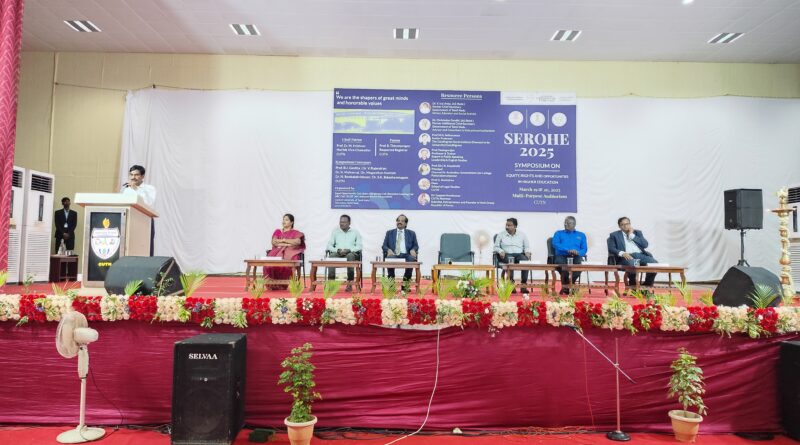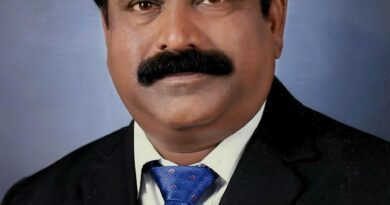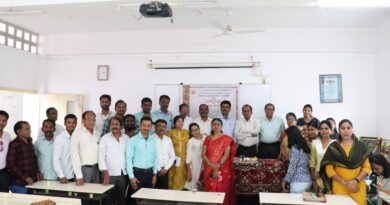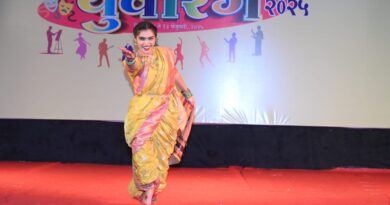SEROHE 2025 Symposium: Addressing Social Justice, Inclusivity and Empowerment
Tirunelveli : SEROHE 2025 Two-Day Symposium on Equity, Rights, and Opportunities to discuss critical issues of social justice, inclusivity, and empowerment was jointly hosted by the Equal Opportunity Cell, Entry into Service Cell, Remedial Coaching Cell, OBC Cell, SC/ST Cell, and the National Service Scheme (NSS), CUTN on 19 March 2025 at the Multi-Purpose Auditorium, CUTN.
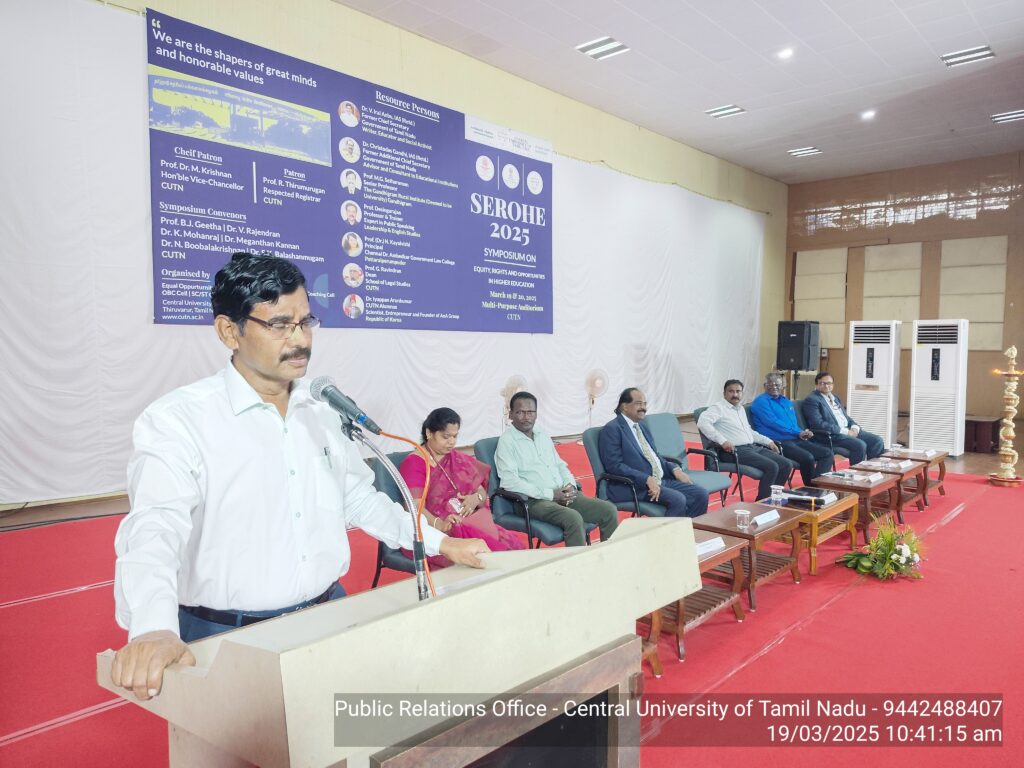
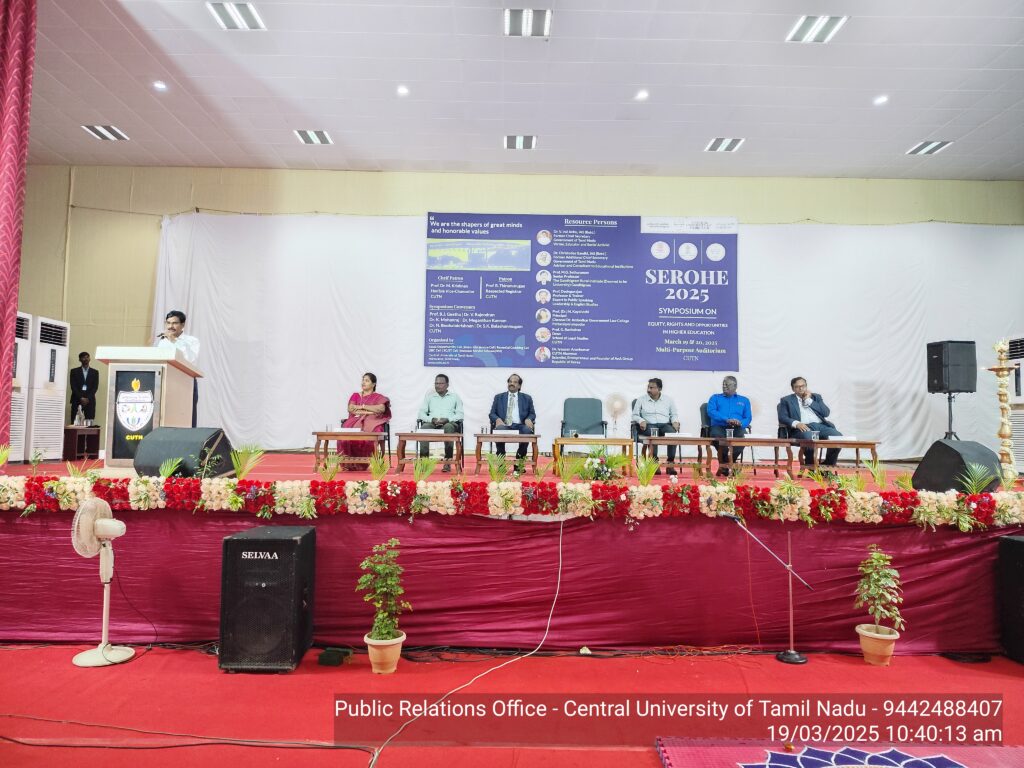
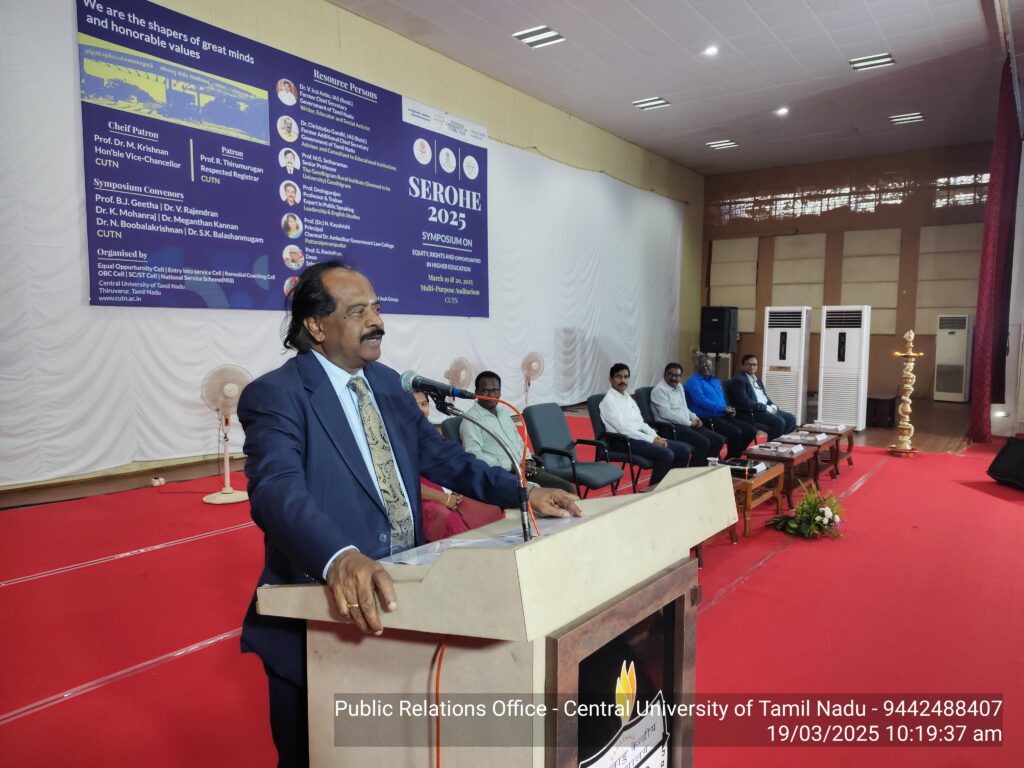
Vice Chancellor Prof M Krishnan, presided over the event. Dr V Irai Anbu IAS (Retd), former Chief Secretary of Tamil Nadu, graced as the chief guest at the event.
Prof R Thirumurugan, Registrar, Shri CA GR Giridharan, Finance Officer, Prof Sulochana Shekhar, Controller of Examination, Dr R Parameshwaran, Librarian, deans, faculty and students were present during the inaugural ceremony.
Prof M Krishnan, Vice Chancellor, expressed that despite belonging to an agrarian family from a village in Madurai, his parents ensured that he got the best education, and that is indeed a blessing, and that is the reason he is able to serve the country and society. Vice Chancellor thanked Dr V Irai Anbu IAS (Retd) for approving the construction of a bridge across the river Vettaru, joining the academic and residential campus of CUTN during his term in office.
Vice Chancellor explained that CUTN has more than 3000 students from Kanyakumari to Kashmir, like a Mini India. Students are guided by 185 faculty members. CUTN has been in the top 100 rank for the past three years and has also secured FIST and PURSE projects. CUTN students have been constantly reaching out and conducting extension activities in the nearby 45 villages, like taking special classes for students, providing good drinking water facilities, and creating a village library. “Our students always find ways to give back to society”.
During his speech, Dr V Irai Anbu IAS (Retd) appreciated that students have come from diverse backgrounds from Kanyakumari to Kashmir and lauded CUTN for being a platform for cross-pollination of ideas, culture and knowledge. He addressed the disparities between urban and rural education: “It is important for students to have exposure. Steven Johnson, in his book ‘Where Good Ideas Come From’, stated that a student studying in an urban would be 10 times more innovative than a boy in a rural environment, and the reason is due to the cross-pollination of ideas.
The government has addressed the issue of inequity and reduced it to a greater extent. In Tamil Nadu, most villages have primary schools, and access to education is assured along with quality breakfast and noon meals. These children are also provided with textbook uniforms and other education tools to educate students in rural areas.”
Dr Irai Anbu also discussed the progress made in curbing child labour and the transformative impact of the Right to Education, citing his experiences in rescuing and educating children from silk looms. He further elaborated on the concept of “effective enrolment ratio,” advocating for removing physical and financial barriers to higher education. He cited the success of the Pudumai Pen scheme in Tamil Nadu, which provides financial assistance to girls from government schools, allowing them to pursue higher education.
Providing higher education not only provides employment opportunity it makes a person complete. An education should make the person live an independent and competent life. We should provide experiential learning; I appreciate the Vice Chancellor of the Central University of Tamil Nadu for providing experiential learning to the students by taking them to nearby villages and showing the real-life situation in the villages. We should not have teacher-centric classrooms in higher education but have student-centric classrooms engaging in discussion, seminars, symposiums, and workshops so the students will be well versed in the subject and other life skills like decision-making, problem-solving, creative thinking, effective communication, empathy and coping with stress. We should create more opportunities for students so that they can compete not with fellow students but with AI.
Prof B J Geetha, Head of the Department of English Studies and Liaison Officer of the OBC Cell, CUTN, delivered the welcome address, The session concluded with a vote of thanks by Dr V Rajendran, Associate Professor, Department of Chemistry

